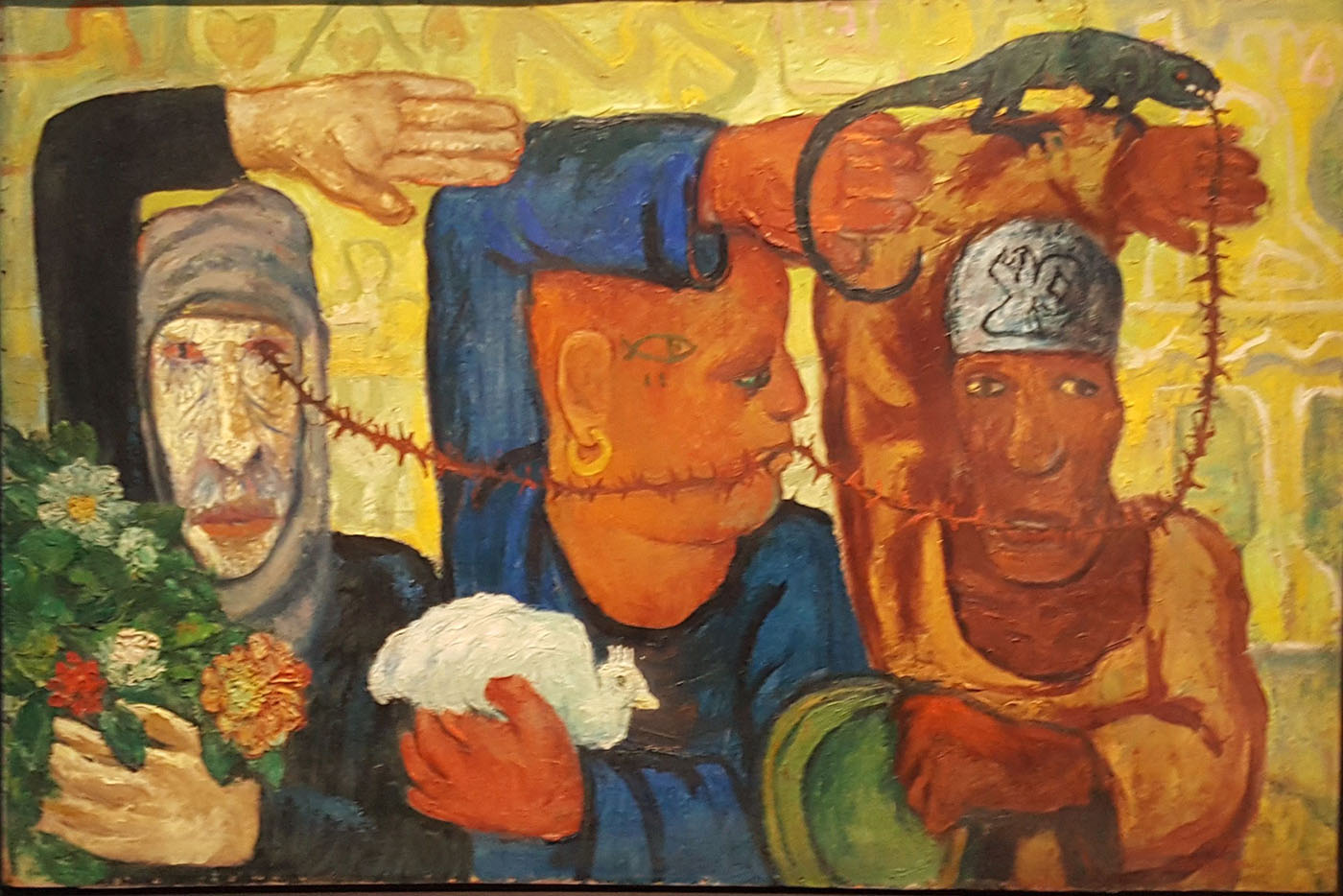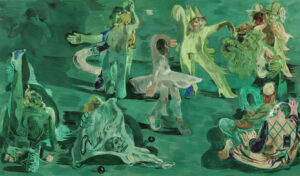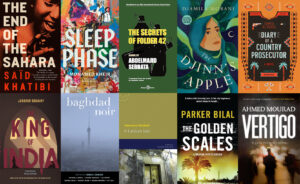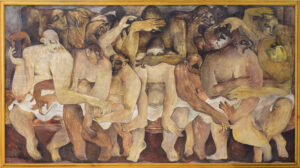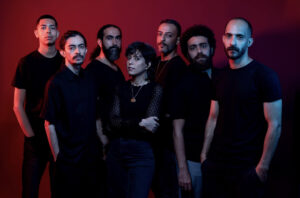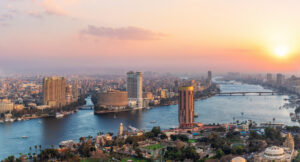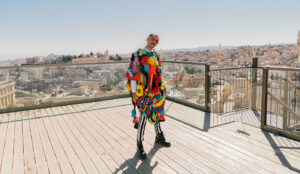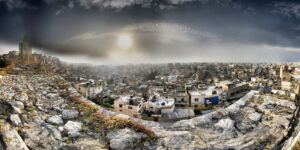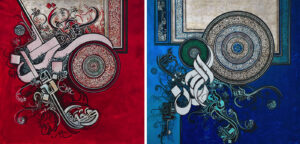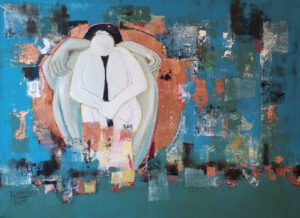Omar Foda
“I’m the Prime Minister!” I shouted at Raghib Pasha.
“I’m eternally sorry, my lord,” he said, head bowed. “I meant no offense. But I have overstepped on account of how important this Hamid Bey could be for us in the Delta.”
“Yes, yes, you ignorant donkey. No one is that important.”
“If he runs under our banner in the election, I’m assured the rest of the large landholders in his province will follow him. With his constituency, we will have every big landholder in the Delta and will have a stranglehold on the region. Coupled with our strength in the provinces of Upper Egypt, we will be able to squash the opposition. Their popularity is limited to Cairo, Alexandria and the surrounding provinces. This is especially important because free elections are so new in this country. What we do now could have an effect for generations. I want to repeat, pardon my rudeness, that I have been told to tread cautiously with him.”
“Enough!” I yelled, hoping to peel the stupid off him. He skittered away. He was a sweet, foolish boy. I let him brief me before these meetings as part of my promise to his mother, my mother’s sister. She was right to worry about him. I heard he wrote plays in his spare time. They would eat him alive. Because of my affection for my aunt, she would always sneak me some lokum when my mother wasn’t looking, I suffered him telling me things I already knew. I drew the line, however, at warnings about peasants, no matter how rich.
He knew of my previous positions as the governor of Fayoum, Minya, Minufiyya, Sharqiyya, Gharbiyya, and Dakahliyya, but did not understand what that meant. I had planted generals throughout the provinces, so I was aware of this Hamid Bey and all the other farmers puffed-up by their fortunes drawn from the pitch-black land and their precious cotton. I knew this man did not even have banners up in his village declaring his candidacy for parliament. I also knew the extent of his wealth. My generals warned me about him, but they warned me about everyone. I’d never had a problem. I was well-versed in how to undercut the bluster they brought into my office, thinking my skin, not so darkened by the laboring sun—almost as white as the lokum that now sat on the tray in front of my desk—covered a soft middle that would allow them to leave an impression if they pressed hard enough.
The boy surely grasped my skill. He was at my inauguration as the Minster of Foreign Affairs. He saw the pomp and respect the King gave me. He also had witnessed bull-headed village headmen leaving my office domesticated and Brits exiting with their stiff upper lips quivering. He was even in the crowd when I gave an impassioned speech to our party leadership and our British allies. Not an eye looked away from me and my gesticulations. I remember the disorienting applause.
It may be time to let him sit in on these meetings. Then he wouldn’t dare talk to me the way he just did. Meetings with the British were a good entry point. They had an innate ability to unsee any Egyptian who didn’t matter to them. Egyptians would spot his weakness and use it to undermine me.
He had a good grasp of English and earnestly believed that elections were won with good policy and respect for voters’ intelligence. The British loved to hear that, believing they had gifted us a wonderful form of government that brought out the best of man. All the while, they played the game of democracy just like us, relying on shows of power and personal charisma. By speaking their language of rights and representation, using names that rolled off my tongue with perfect pronunciation, I convinced the limeys that I was not so different from them. Like how the lokum, Turkish Delights as they called them, weren’t so different from their Jelly Babies.
The lokum, or melban as the peasants called it, was part of my game. My guests would see it when they first entered my office, but I would only offer it to them after we had sat and talked for a bit and the coffee boy, Mahmoud, brought in the drinks. It let them see I could offer something sweet, if they decided to follow my rules.
But that offer was the intermediate step, a lifeline, if you will. I first had to show them where they stood, or rather sat. It was a rickety, cushion-less wooden chair. I made sure to have it polished and presentable so that they were caught off guard when they sat and found the seat uncomfortably small. Even the smallest hipped would be left sitting with flaps of themselves hanging over the wooden rim. Any movement would also set the chair into spasms as it negotiated the uneven floor with its even more uneven legs. The dance was made more disconcerting by the chair’s shortness, it was dwarfed by my heavy wooden desk and its palatial chair.
The third phase of attack was the cigar. If my message had reached them and they accepted the lokum and my offer, then I would offer them a cigar. I would pick up my cigar, which was always lit beforehand, and we would happily bathe in our thick, shared smoke. Our laughter and expressions of companionship pushing clouds between us. If they had plugged their ears to my message, then I would offer them only a cigarette. I would proceed to overpower them with words and the nimbuses billowing from my mouth. Their small little clouds being swallowed by mine. By that point, everyone understood. It was customary to be generous when guests arrived, both the Egyptians and the British expected it, but I did not let age-old habits prevent me from asserting myself.
The farmers and peasants wanted to see and feel power. Once they did, I could lead them to the ideas of votes and constituencies and rallies and compromise. The sons of Albion needed to see the Oriental’s charisma. They believed that their superior fire power and advancements in technology, which we could not yet compete with, meant they were superior in all things. That’s why these spindle thin half-men, with skin peeled by the unobscured desert sun came into my office thinking they could ignore me. Pay lip service to the foolish savage. They all left enthralled. I was a credit to my race, and they could all imagine working with me.
The meeting with Hamid Bey was a chance to see how my new chair could enhance my routine. It had a large dark mahogany frame and was upholstered with a merlot-colored leather. It sat upon a rod, also mahogany, that extend out into four wheels. The mechanism meant I could roll it back and forth between my desk and the wall, which was adorned with the picture of the King, and rotate a full three hundred and sixty degrees. It even allowed me to lean back. In the few days I had had it, I had come to rely on the backward bend to express my displeasure at the boy without scolding him. If I pelted him with too many insults, I would hear words from my aunt.
It was only when he suggested forcefully that I be careful with Hamid Bey, that I shot up from my chair and screamed at him.
Now that he had wisely left, I readjusted my suit, sliding my hands down the front to feel the wonderfully crafted fabric and eliminate any creases. I instinctively jumped into my grooming routine. Running my right forefinger and thumb in opposite directions over my mustache, and then my right and left forefingers over my eyebrows. I reached up and verified my tarboosh was properly sitting.
Why did he insist on warning me of this man, one who I had never met but had met a hundred times? Was it because of his training at al-Azhar? There was little doubt that I could not keep up if he aimed to discuss the dusty sciences of jurisprudence and moral philosophy. But those weren’t relevant to our laws and our government. We had crafted a new advanced Islamic society which mixed the best the West had to offer with our morality. That meant I, who had studied in France and spent time in England and had not forgotten my roots, was the master of the knowledge needed for this world.
I was also royalty. A cousin of the King. What was he? Yes, he knew the dirt. But so did the worm. Like the ibis, I had flown across this whole country and feasted on worms. I picked up my cigar and let my throat and chest fill with smoke. I wanted to add something more theatrical to our introduction, so I blew a wall of smoke as the man walked in.
I could scarcely see his face behind the cloud, but I saw his freshly polished black shoes, visible in the penumbra, and heard the tapping of his cane on the tile. The elderly were even easier to sway to my cause, they had so little fight left. But as his face appeared through the smoke, he was not as aged as I imagined. His beard was shaped into a large white tuft below his chin with neatly manicured sides that hugged his jaw and upheld his powerful cheekbones. As he walked to the traitorous chair, it was clear he did not need the cane to walk. It was meant to punctuate. The smooth alabaster ball that sat at the top, the point of contact between the man and the stick, looked menacing. I thought I saw flecks of red on it, but when I blinked, they disappeared.
“My dear Hamid Bey, please sit. It is a great honor to have you visit me today. I assume that the trip was uneventful.”
“Yes, your grace, it was. I thank you so kindly for hosting me today and honoring me with your invitation.” If there was any emotion in the words, I could not find it.
He sat, with severe posture, which seemed to disarm the chair. If Raghib had come in at that moment and removed it, the Bey would have been undisturbed, maintaining his seat on an invisible chair. The poor little chair was perplexed.
I didn’t need a chair to bend this village thug! Look at his dark skin, it was a shade darker than the mahogany of my chair. Look at how he was dressed! His white waistcoat sneaking out from under his black galabia. His white turban, the mark of an al-Azhar graduate, making the blackness of his dress and the brownness of his face even more stark.
“What would you like Hamid Bey?” I asked, ostensibly enquiring what he wanted to drink, but hoping, in the cold pit of my back, he would ask for more.
“You are too kind, your supremeness, I do not need anything.”
He refused three times, using the same words and the same gesture. Each time bringing his darkened mahogany hand to his chest, to supplement his words of apology. The hand was thin, calloused, and brimming with the power to rip out a cotton boll.
The third time the hand came to his chest, I noticed how crisp white his waistcoat was. My eyes darted to his galabia, also spotless. No dried clods on the fringes. I found the fake modesty pretentious. Why not dress like a proper modern man? Who was he trying to fool?
He finally relented and asked for a coffee with no sugar. I matched him. I could just as easily display my abstemiousness. I should’ve known he would have turned down the Turkish Delight when I offered it after Mahmoud brought in the coffee.
“No thank you, your resplendence, I am not one for sweets.”
His face carried the gauntness of forbearance. I was by no means portly, not like some of my kith and kin, but I carried the soft unwillingness to deny myself the joy of sweets and other finer things.
“I have brought you here so that we may discuss your membership in our party,” I said.
“My advisers tell me you are planning to run for parliament.”
“If God wills it, your grace.”
“And they tell me you have yet to put up banners or posters. That is good! When we come to our agreement you can put them up in support of us.”
“I will not put up anything. I trust God and the people of my village. They do not need cheap signs to understand my positions and how I will fight for them.”
“Fair enough, the signs can be seen as intrusive, especially in a rural setting. Speeches and feasts do a better job anyway.”
“I will not do those things either. The people know me, and I have earned their respect through fair and honest actions. My family’s reputation is unimpeachable. If God has ordained my victory, then nothing I will do will change that. I will only have a feast afterwards to celebrate our good fortune and assure the villagers I will always stayed tied to them.”
“Yes, of course, God has a Plan for all of us. I’m sure you know what is best for your constituents.” I was at a loss for words. The man had no political sense, yet my general told me he would win easily.
“We, the party bosses and myself, believe you would find the party very much in line with your sensibilities. We think, inshallah, you can be the leader of our effort in Dakhaliyya for years to come.”
“If God Wills it, your grace,” he said softly with none of the eagerness I expected.
“You will find that we have access to the halls of power,” I said, gesturing around my office, “And that we have the interests of the great landowners, like yourself, always in our minds. You are the backbone of this country, and we are committed to ensuring your prosperity for generations. Egypt will, inshallah, become an independent world power carried by men like you.”
I did not even bother offering him something to smoke. I picked up my cigar and took a big, long drag. As I sat with it, his dark jasper eyes bored new holes into my forehead. I hadn’t noticed until now, but even seated he looked down on me. If I had spent a moment looking at his shoulders, I would have seen, I was dealing with ‘Ug ibn Anaq.
The inside of my cheeks burned, and I was forced to jerk my head to the right and blow out the smoke. Despite my cheeks urgency to rid themselves of the acrid smoke, I maintained my sangfroid. I had been forged in the most intense negotiations. I had faced death and never shuddered or stammered.
“Raghib Pasha,” I shouted. Now was the time to show the boy my power, to teach him who ran things, to make clear what democracy demanded, what this country demanded. I would slay this bogeyman, the frightful, duplicitous, pious, severe, unflinching, uncompromising, unsubtle peasant. I would do it with the third pillar of real democracy, favor. It was the failsafe when power and charisma were not enough. I would offer him the thing he could not abstain from. The thing he desired, even if he was not aware of it. A place besides those of fair complexion and noble lines, a title like my title. He would be a pasha, something his sow of a mother, who birthed him in some mud-floored hut, could never imagine.
I eased my chair away as I said, “Hamid Bey, to show how much we value your loyalty, I wanted to present you with..,” and then I pushed my right side into the chair, spinning it to the cabinet behind me. It was a technological marvel. I could only imagine what the future held for chairs. Maybe an engine would move you wherever you wanted with a pull of a lever. I unlocked the top drawer of my cabinet and sought paper with the official seal to write out the promise of his future pashadom. We would schedule his official investiture for a later date. I fumbled with the paper, and I looked for a pen, but remembered that it was, of course, on my desk. I was so out of sorts.
I pushed my jittery body back and to the left in the chair and successfully spun in a parabola that landed me nearly to the position I started. When I looked up, I saw Raghib Pasha standing behind the empty chair.
“Hamid Bey has left, your grace.”
I threw the pen and paper at the ignoramus.
“Did you give him a drink?”
“Yes.”
“Did you give him the lokum?”
“No, he wouldn’t take it.”
“Cigar?”
“No.”
“Did you offer him pashadom?”
“I was just about to. I was turning around in my chair to get the papers.”
“You turned around, while still seated in the chair? You didn’t get up? You didn’t say anything to him? If you pardon my saying, I told you he was a prideful man.”
“And I told you, you dunce, not to worry. I know these men, his only other political option is the nationalists who hate landowners like him, he is bound to return to us.”
“Yes, your grace, I’m sure he will return.”
“Of course he will, I’m the goddamn Prime Minister,” I screamed.



